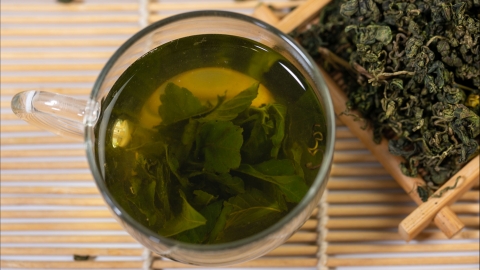Can Gynostemma pentaphyllum be steeped in water for long-term consumption?
Generally speaking, Gynostemma pentaphyllum (Jiaogulan) is not recommended for long-term consumption as a tea infusion. Detailed explanations are as follows:

Gynostemma pentaphyllum is a traditional Chinese herbal medicine that has multiple functions, including clearing heat and detoxifying the body, invigorating qi to calm the nerves, lowering blood lipids, reducing blood pressure, and controlling blood sugar levels. Drinking an appropriate amount of Gynostemma tea infusion can help regulate the body and improve overall health. However, due to its cold nature, long-term consumption may irritate the gastrointestinal tract, causing symptoms such as abdominal pain, diarrhea, nausea, and vomiting. This risk is especially higher for individuals with a cold constitution or those suffering from spleen and stomach deficiencies.
Gynostemma has blood pressure- and blood sugar-lowering effects. Long-term and excessive consumption may lead to excessively low blood pressure and blood sugar levels, resulting in symptoms such as dizziness, fatigue, palpitations, and sweating. The strong aroma of Gynostemma may also stimulate the sense of taste over time, potentially leading to a reduced appetite. Prolonged use of Gynostemma may increase the cold nature within the body, making individuals more susceptible to feeling cold. Additionally, Gynostemma may interact with certain medications, such as antihypertensive drugs and hypoglycemic agents, potentially affecting drug efficacy or increasing the risk of side effects.
When consuming Gynostemma tea infusion, one should control the dosage to avoid excessive intake. It is important to note that Gynostemma is not suitable for everyone. Individuals with a cold body constitution, spleen and stomach deficiencies, hypotension, hypoglycemia, as well as pregnant women, should use it with caution. Prior to consuming Gynostemma tea infusions, it is advisable to consult a physician to ensure safety.









